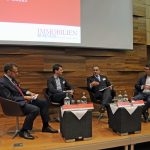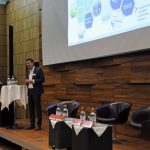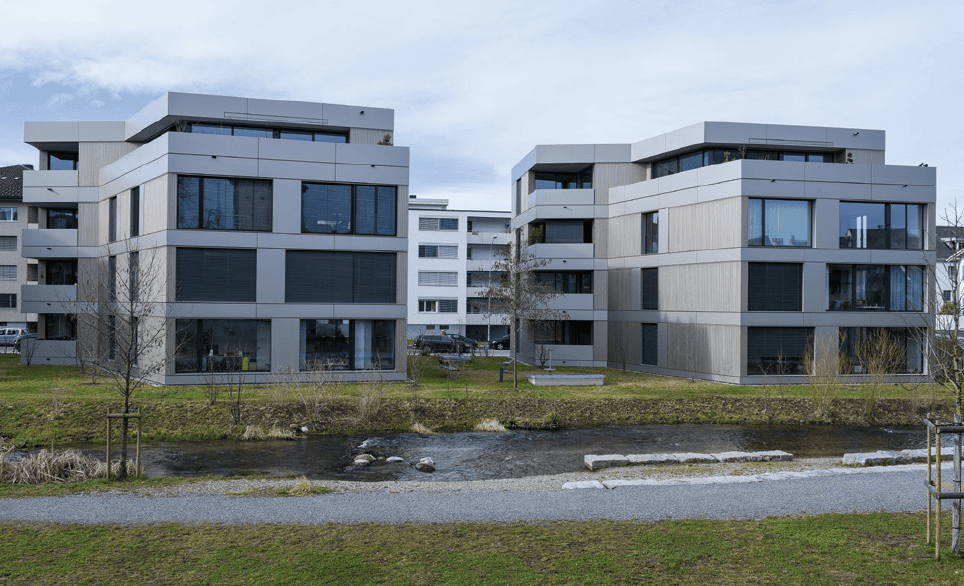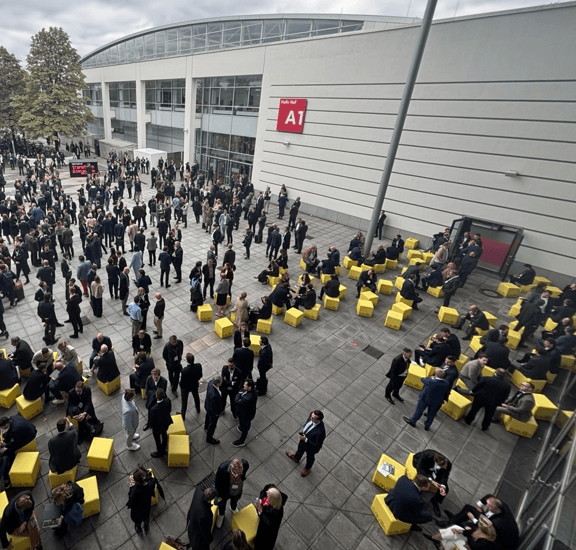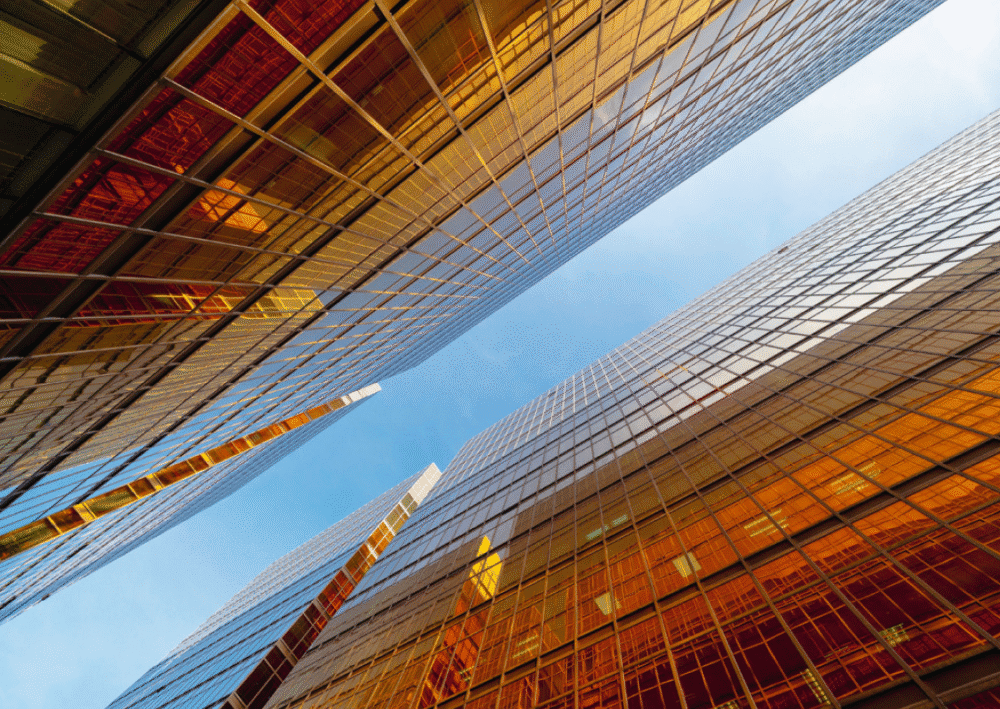Review 70th Swiss Real Estate Conference
On October 31, 2017, around 100 participants gathered at the Metropol restaurant in Zurich on the occasion of the 70th Swiss Real Estate Talk on the exciting topic of industrial and commercial real estate.
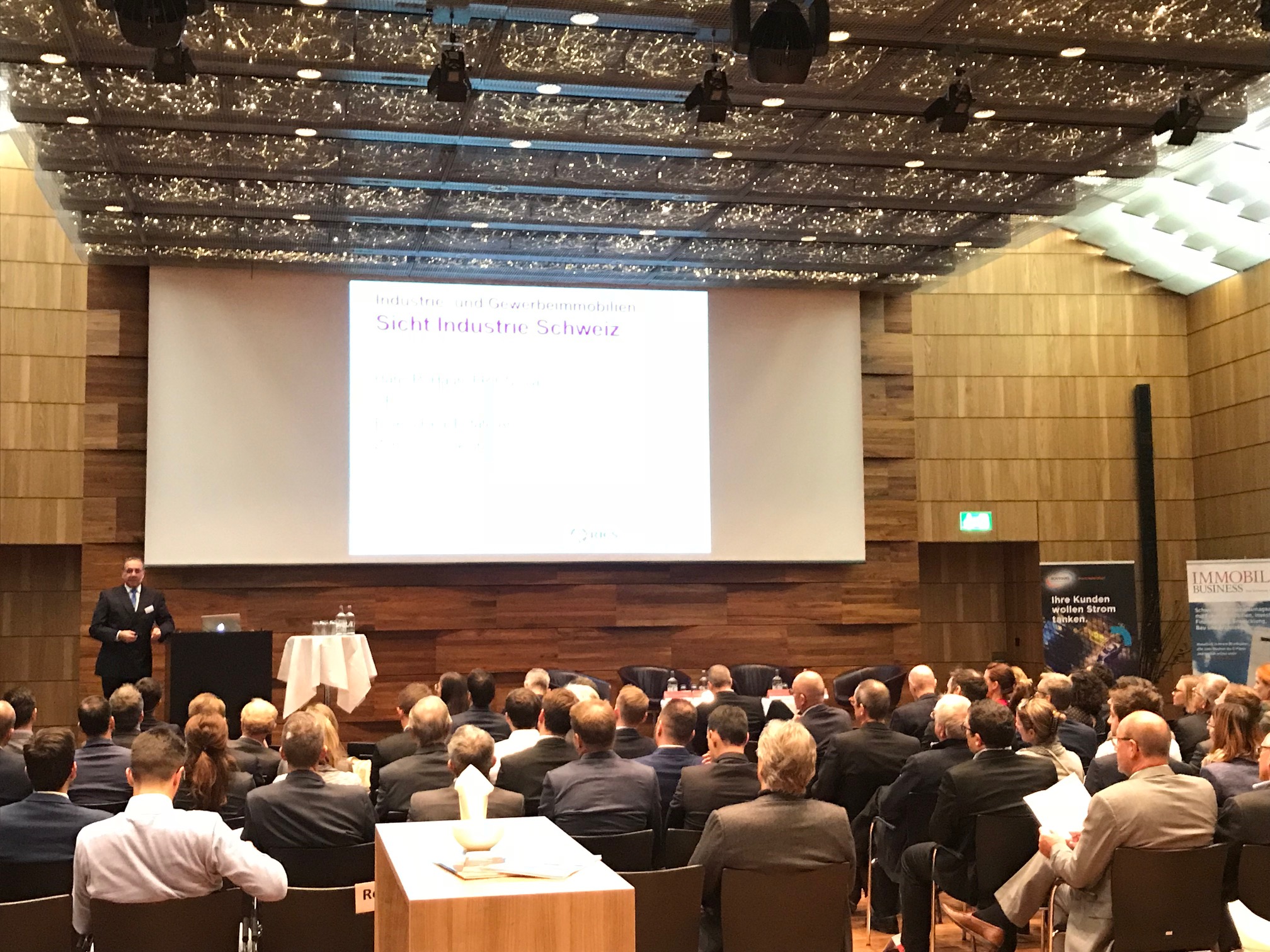
Industrial, commercial and also logistics real estate appear on the radar of institutional investors with the increasing investment emergency. In order to invest successfully, in-depth knowledge of this market segment is required. Important facts about and useful insights into the sector were provided by the three speakers Hans Rudolf Hauri, CEO of Ruag Real Estate AG, Dominic de Vries, Stuttgart Site Manager at Beos AG, and Markus Faber, COO of Apleona HSG AG.
Service mindset and customer education
Hans Rudolf Hauri began by giving an insight into the business activities of Ruag Real Estate AG. As Hauri then reported, the systematic development of industrial parks involves six important steps: First, the definition of a basic structure and a theme orientation, then the decision for a flexibly usable architecture and the appropriate organization of project financing; then the formation of "core zones", followed by suitable services for the users of the future industrial park (e.g. fitness facilities, catering and, if necessary, a daycare center). Last but not least: complementary residential uses on the site. Using practical examples such as the Lerchenfeld in Thun or the industrial area in Altdorf, Hauri showed the challenges in planning, building and operating commercial or industrial parks. One of his tips regarding services: "We have to educate customers so that they also only order what they need."
New asset class corporate real estate
Dominic de Vries then spoke about the asset class of corporate real estate, which is currently establishing itself in Germany but is still quite opaque. There are four property categories to distinguish here: Transformation properties, production properties, industrial parks and warehouse/logistics properties (with a maximum of 10,000 to 11,000 sqm). "Corporate real estate represents a growth market with significant space and value potential and offers high returns with low volatility compared to other asset classes," De Vries said. He added that return expectations in this segment are consistently about 200 basis points higher than in office or retail, for example. But corporate real estate is also increasingly coming under the general pressure on yields. What distinguishes this asset class, however, is its lower dependence on market cycles and its fairly high diversification. De Vries concluded his presentation with the example of the site acquired by Beos in 2011 in Glinde, Schleswig-Holstein, east of Hamburg, and the Glinnkamp industrial park developed there, which the company was recently able to sell for around 100 million euros.
From single to multi-tenant solution
Markus Faber then presented industrial and commercial properties from the perspective of operators and users. As a first example, he chose the Zurich industrial site Oerlikon, which has undergone an impressive transformation process over the past 20 years with the help of Apleona and its predecessor companies. A formerly (in the 1930s) sealed-off industrial site with circa 3,000 workers now presents itself as a mixed-use area with a wide variety of uses - from living to working to leisure - open to many population groups. "When completed, there will be 12,000 jobs there and about 5,500 people living in the various buildings," Faber said. He added that so-called single-use properties are often the driver of transformation. In Switzerland, too, the number of single-use occupants on a site continues to decline, he said. This is paving the way for increased repurposing of such industrial sites and multi-tenant solutions, he said. In his view, it is important to find tenants who "tick in a similar way" when forming commercial clusters.
The subsequent panel discussion, moderated by Prof. Dr. Markus Schmidiger from the Lucerne University of Applied Sciences and Arts, brought many questions from the very interested audience shortly before the aperitif riche on the topics of "services on demand", the all-important "skilled labor factor", "opportunism in tenant selection", and the further development and future significance of "coworking spaces" in the environment of business and industrial parks.
The presentations of the speakers from the 70th Swiss Real Estate Meeting
- Corporate Real Estate | Dr. Dominic de Vries >>>PDF
- Industrial and Commercial Real Estate View Industry Switzerland | Hans R. Hauri, FRICS, sia >>>PDF
- Industrial and commercial real estate from the perspective of the operator/user >>>PDF
Impressions













